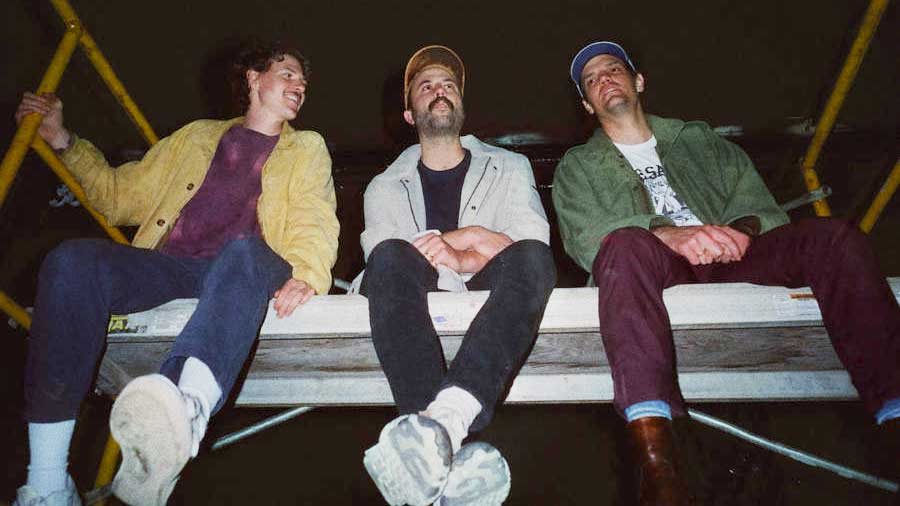Indiana miscreants Houndmouth – comprising guitarist Matt Myers, drummer Shane Cody and bassist Zak Appleby – have been going for a decade now, rewiring classic American rootsrock in their own fiery image.
Fourth album Good For You was recorded at the Green House, a 19th-century shotgun place that once belonged to Cody’s grandparents. After 2018’s surprisingly synth-laden Golden Age, the new record feels very much like a return to form. We caught up with Matt Myers.

What brought about the new record?
After we released Golden Age, I found that I couldn’t play those songs comfortably by myself. So that’s where a lot of the motivation for making this record came from. I wanted to write songs that I could play on acoustic guitar.
Did you need to reconnect with something you’d lost?
Most definitely. It’s very easy to get wrapped up in stuff, especially when you’ve been on tour for four years. I needed to get away from music and reconnect to myself. So I was just reeling it back in: “What do I want? I want to be direct and specific.”
Is that why you also wanted to return to the Green House?
Yeah, because we recorded our first EP [2012’s Houndmouth] there. It’s just a comfort zone. In the very early days we all collectively met each other at the Green House and started playing. It’s a pretty open creative space.
Many of the new songs are character-driven. Are they based on people you know?
A lot of them are based on people that I’ve either met or know well. And a lot of the songs are based around the Midwest, too. I wrote it in winter, so it was really cold and kind of gross outside. There was a gloominess in the air that made its way on to the record somehow. I’ve always written with characters and settings in mind. That’s just what I gravitate towards. The same with books or movies. I don’t need explosions in movies, I just want to see good characters.
What about the standout songs, such as McKenzie?
Shane used to date a girl called McKenzie. It felt like a three-syllable name that just rolled off. So I started by writing these little letters to McKenzie, based on a fictional love story, because I didn’t experience any of that relationship. The story was there, then I added this guitar riff that I’d had for a while.
Another one, Miracle Mile, is a compilation of people that we’ve met on the road. Some are great hangs, but you end up fighting with others, like this guy in Arkansas. He and our tour manager got into a squabble one night, and the guy still wants to fight him years later! Let’s say we meet interesting people.
This is your first album for Dualtone after leaving Reprise. How’s that been?
It all felt a little contrived on a major label. Everything was lost in translation and it was just hard to communicate. And they had a say in everything. Being back on an independent label is fantastic, like when we were on Rough Trade years ago, which was one of the greatest experiences of my life. They completely trusted us, even though we were just reckless twenty-four-year-olds. So to be on Dualtone is like: “Yeah, this is how it should be!”

